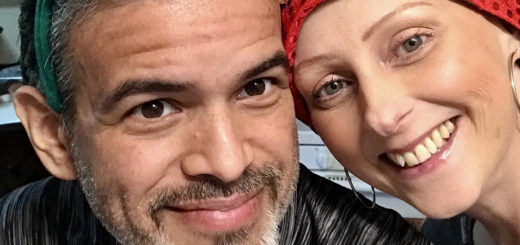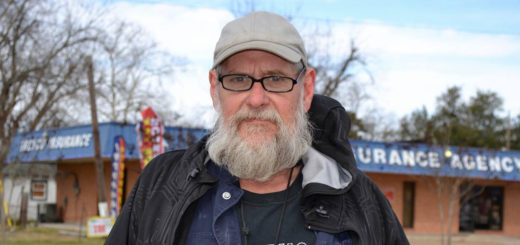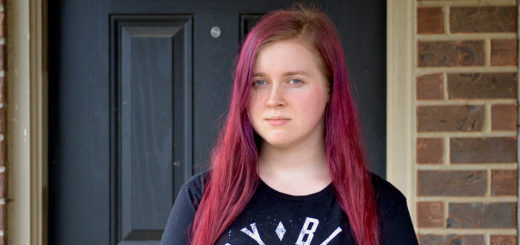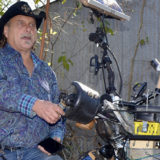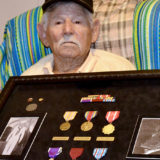Opening lines of communication with deaf, hard-of-hearing
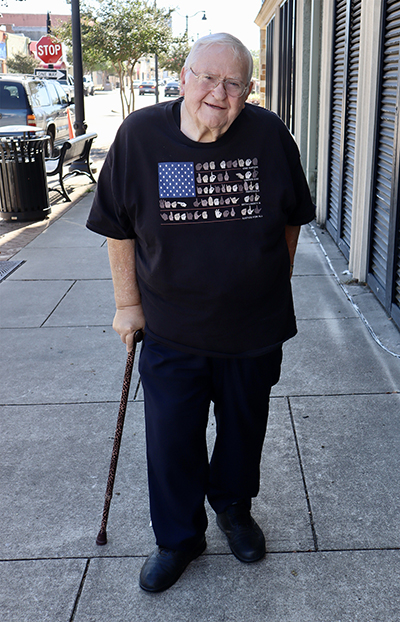
“I think that I did it to myself. I played rhythm guitar in a church band. We had our amplifiers sitting right beside us. We wanted to be heard, so they were turned up real loud. All the years of playing in the band, and playing music real loud, certainly contributed to me being hard of hearing.
“Even though I hear some things, I don’t always understand them. Anything that comes over a loudspeaker, or voices at a higher frequency, I have problems understanding.
“One ear is worse than the other, but I wear two hearing aids, mostly when I’m working in the classroom. I’m a substitute teacher. With most of the young girls who have softer, higher voices, it’s hard for me to understand. Sometimes I’m afraid that I’m going to give them permission to do something I’m not supposed to. Because they’ll ask you anything.
“I have struggles, but I can still hear. So it’s not like the struggles that a deaf person has. Everyday conversations with me, one on one, I usually do pretty well. Sometimes I have to ask people to repeat.
“When I’m teaching, I’ll introduce myself to every class using sign language. Most of the students are very accepting. Sometimes they’ll want to go through the alphabet. But there are some who make fun. Sometimes it’s at schools that have deaf ed. I’m surprised they’re not very accepting there, because they have deaf students in some of their classes.
“I’m satisfied with the way I am. It doesn’t bother me that I don’t hear everything. I think there’s a general idea that if you can’t do everything, then you’re not a whole person. I can’t walk like everybody else does, but I can still walk. It doesn’t make me half a person. It just makes me a person who can’t walk real well. Same with my hearing. I can’t always hear real well, but I’m still a person. I should be treated like one.
Creating awareness
“There needs to be greater awareness in the community of those who are deaf or hard of hearing. It’s more about hearing people understanding and being able to communicate with us.
“Hearing people don’t try to be rude. They’ve just never been taught what to do. If I walk into a restaurant and sign, the staff will usually just stand there and stare or start talking. If I was completely deaf, I would have no idea what they’re saying.
“There are ways to communicate with a deaf person, even if you don’t sign. You can grab a pencil and paper, and write quick notes. You can hand them a menu, and they can point to what they want. Another way is an app on my phone called Live Transcribe. It takes spoken words and transcribes them into written English.
“Many deaf people do speak. Some have been deaf all their lives, and never heard their voice. So it may sound weird to you, but don’t let that affect you.
“After my wife passed away, I no longer have anyone at home to practice signing with. So I enjoy going to deaf coffee chats. We gather as a group and we sign. We talk about the news and things going on in our lives. It makes me feel like I’m part of a group of people who understand me, and I understand them.
“We’re trying to make my church, Baytown Revival Center, deaf friendly. Next year, we want to have an ASL musical. There would be music for hearing people. And those on stage would also be signing, so deaf people could enjoy. I’m also hoping to start a Bible study for the deaf.
“This is an ongoing project for me, for people to be aware that there are various ways to communicate with the deaf and hard-of-hearing. It’s something that I’m passionate about.”
— Dennis Voris
For more information on the deaf coffee chats, check the Facebook pages, Deaf Coffee Chat Baytown and Deaf Coffee Chat Mont Belvieu.

